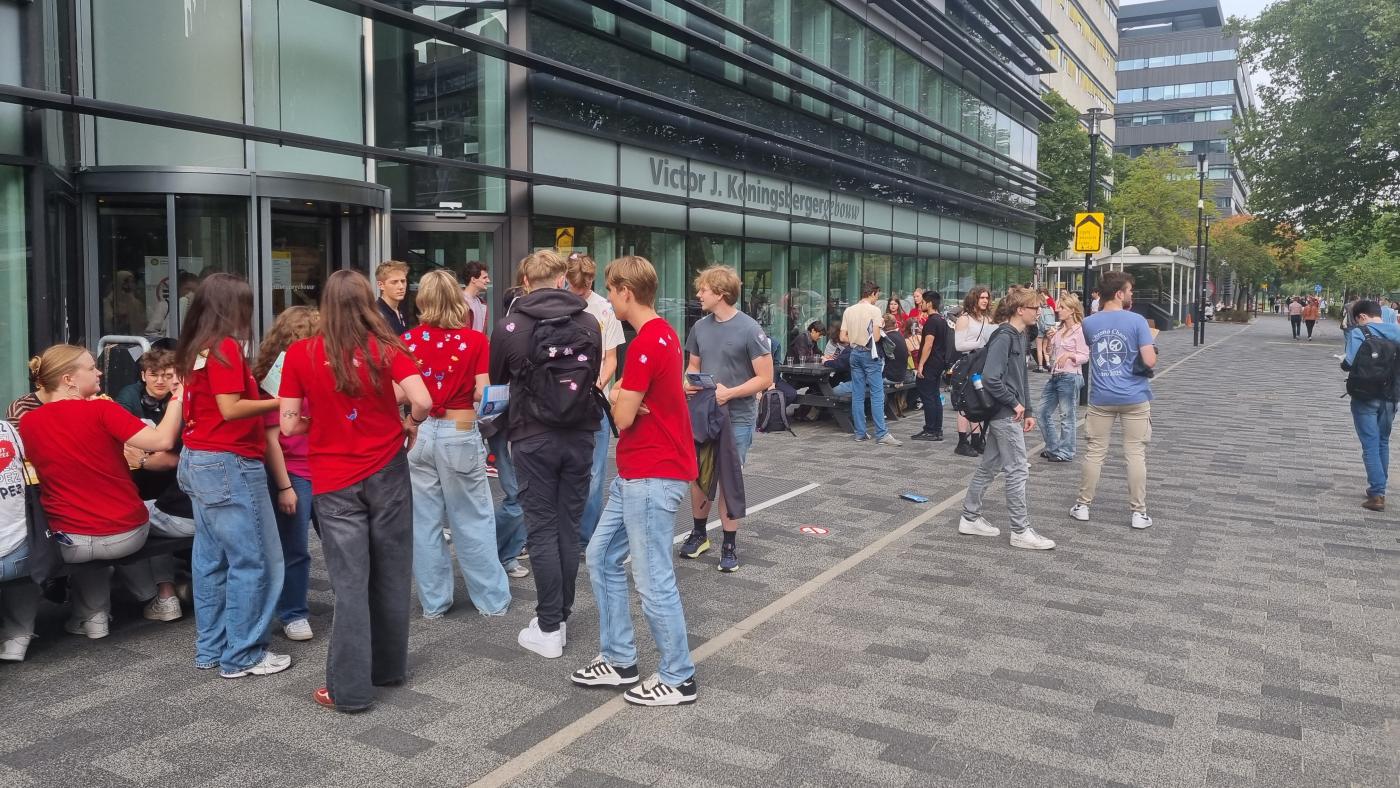More appealing to women
New Science Bachelor's programme aims to appeal to a different group of students

The Science Faculty Board would like to launch this new Bachelor's programme in four years. According to Vice-Dean Bert Klein Gebbink, the programme, which currently has the working title “Natural Sciences”, is urgently needed to maintain the number of students in the faculty. UU's Faculty of Science is seeing the adverse effects of certain demographic developments earlier than expected.
The rapid growth experienced by the faculty in the past five years has come to an end. The number of students increased by around 5 per cent each year to a total of 8,300. However, last year saw the first decline in the number of first-year students, which fell by 5 per cent. The decline was even greater in Computer Science, which saw a decrease of 12 per cent, and Information Science, where student numbers fell by 24 per cent. Interest in Mathematics is also declining, having dropped by 3 per cent.
Out of the freezer
Although there has been a slight increase again this year in Computer Science and Mathematics, the overall trend is undesirable according to Bert Klein Gebbink. He mentions recent statements made by the association of Dutch research universities, Universities of the Netherlands (UNL), and the employers organisation VNO NCW: "The Netherlands needs more talent in science and technology. The need for graduates with a background in science and technology is increasing, not only in the corporate world but in other areas of society as well. Our ambition remains to meet that demand as much as possible."
An increase in the number of students has also been agreed upon as part of the framework of the national sector plan. All the more reason to press ahead with a proposal that was already on the table before the coronavirus pandemic, but had to be put on hold for a while. At the time, market research showed that a broader-based programme would be an interesting option for women.
Little interest
Prospective female students show relatively little interest in the discipline-based classical programmes offered by the faculty in Mathematics and Physics, or the relatively new discipline-based programmes in Computer Science and Information Science.
As part of the national sector plan, the Faculty of Science expressed the ambition to increase the proportion of female students. The target numbers have yet to be met.
Preliminary studies conducted five years ago showed that women would be more inclined to choose the aforementioned subjects if they were offered in a more integrated and interdisciplinary manner.
Not English-taught
According to the study, fears that a new, broad-based programme would cannibalise existing disciplinary programmes are unfounded. Klein Gebbink explains: "The conclusion at the time was that we are good at serving our standard audience, but we really need to come up with something new to attract more students."
Nevertheless, it took some time before the faculty started working on the plan. Talks with Eindhoven University were held to explore the possibility of setting up a joint programme. But that would be too far in the future.
Initially, the faculty intended the language of instruction of this new programme to be English, looking to attract international students. However, it is no longer possible to do so due to the political resistance to new English-taught programmes. "Would we have preferred to do it in English? That would still be our preference. But that question is not relevant at the moment," says Klein Gebbink.
New forms of education
The faculty board recently set up a so-called “blueprint committee” to outline the contours of the new Bachelor's programme. According to Klein Gebbink, the broad interdisciplinary life sciences programme Molecular & Biophysical Life Sciences, which started four years ago in Utrecht, should serve as an example.
In addition, the programme will have to offer innovative forms of education. "We will take a targeted look at how we can entice other prospective students to choose our faculty. The blueprint committee will make proposals for this. It really has to be a completely different programme from the one we have now."
Next year, the faculty board will decide whether to proceed with the development of the new Bachelor's programme. It is expected to be launched in 2029 at the earliest.
Comments
We appreciate relevant and respectful responses. Responding to DUB can be done by logging into the site. You can do so by creating a DUB account or by using your Solis ID. Comments that do not comply with our game rules will be deleted. Please read our response policy before responding.